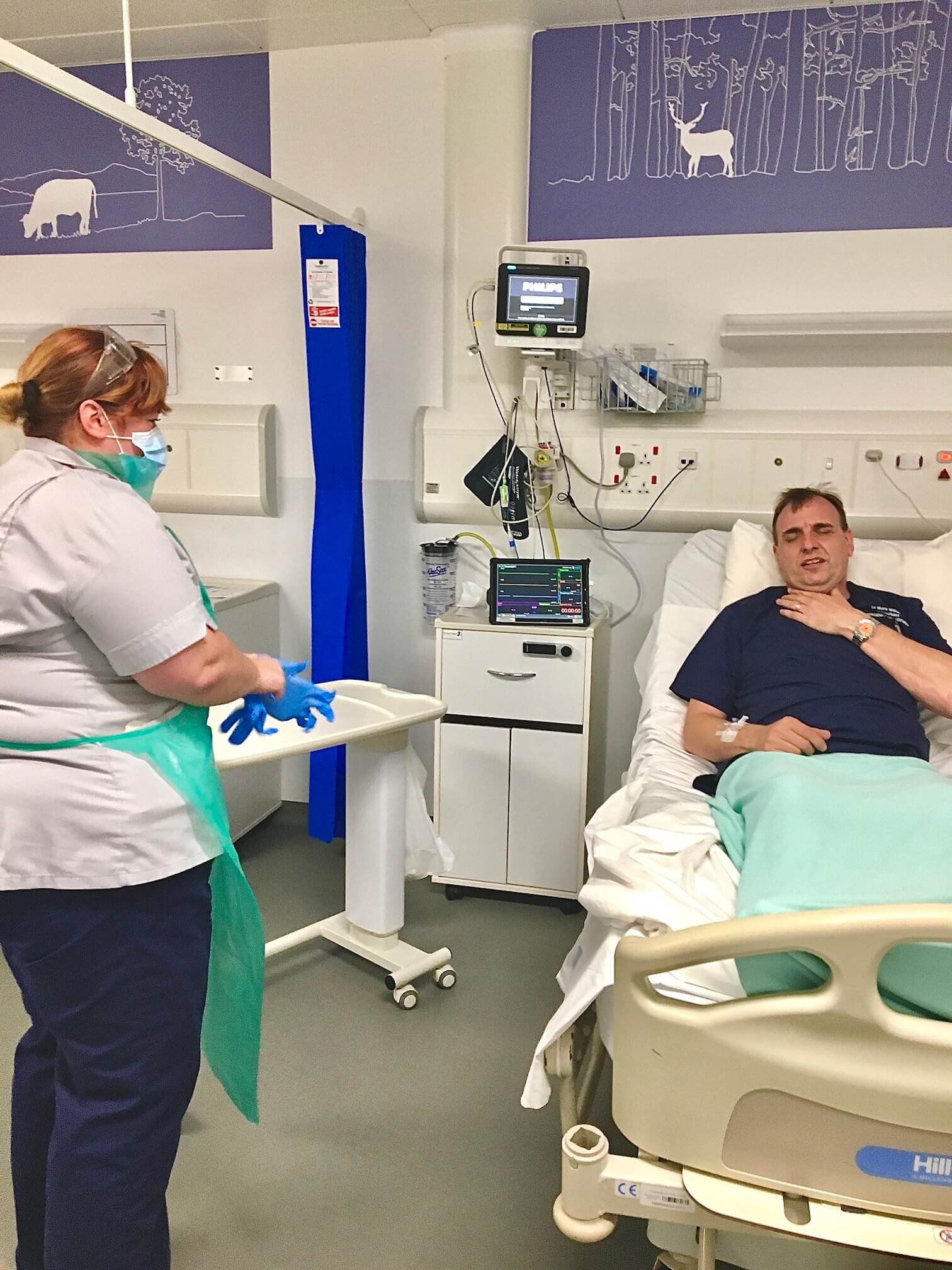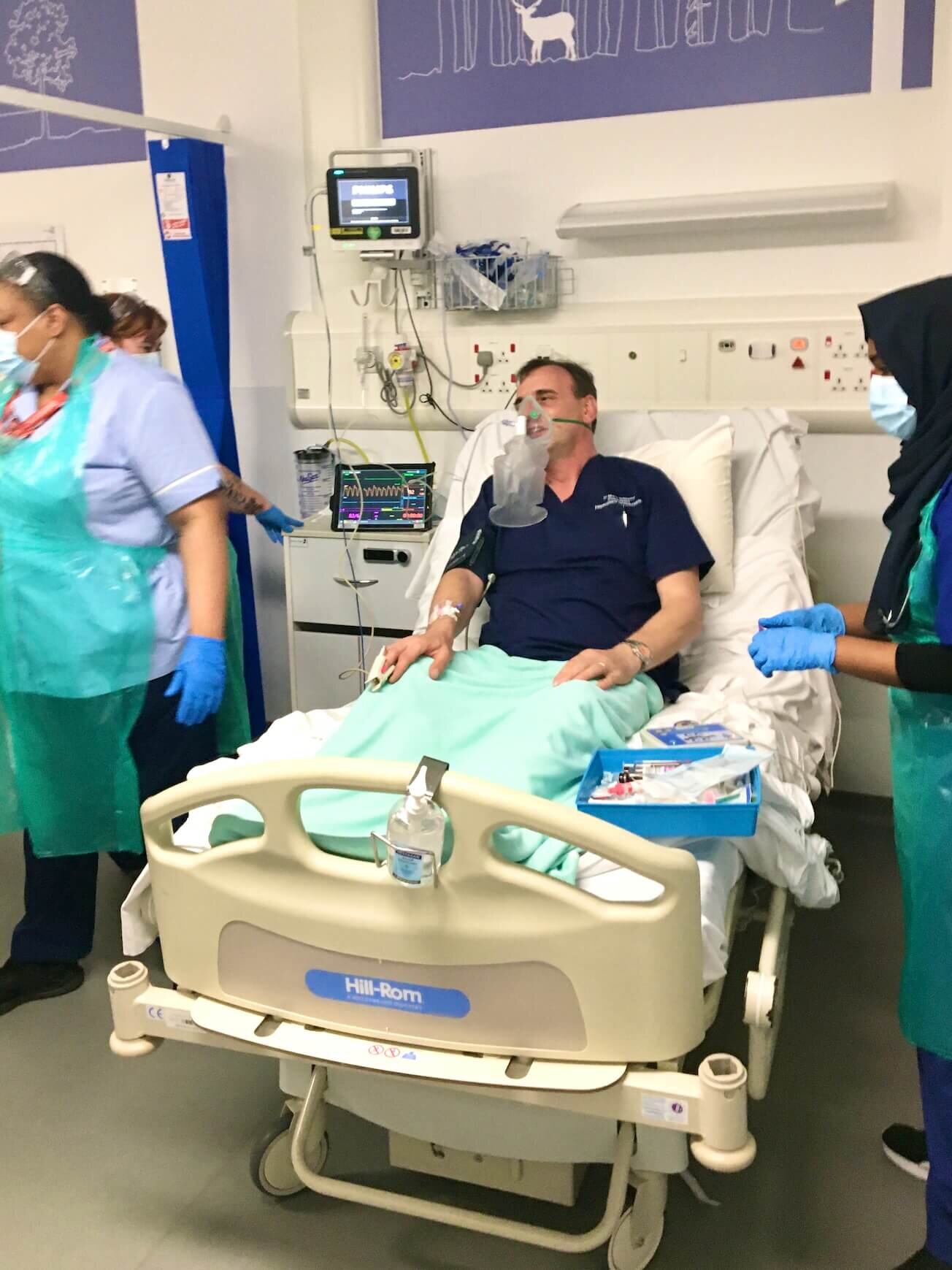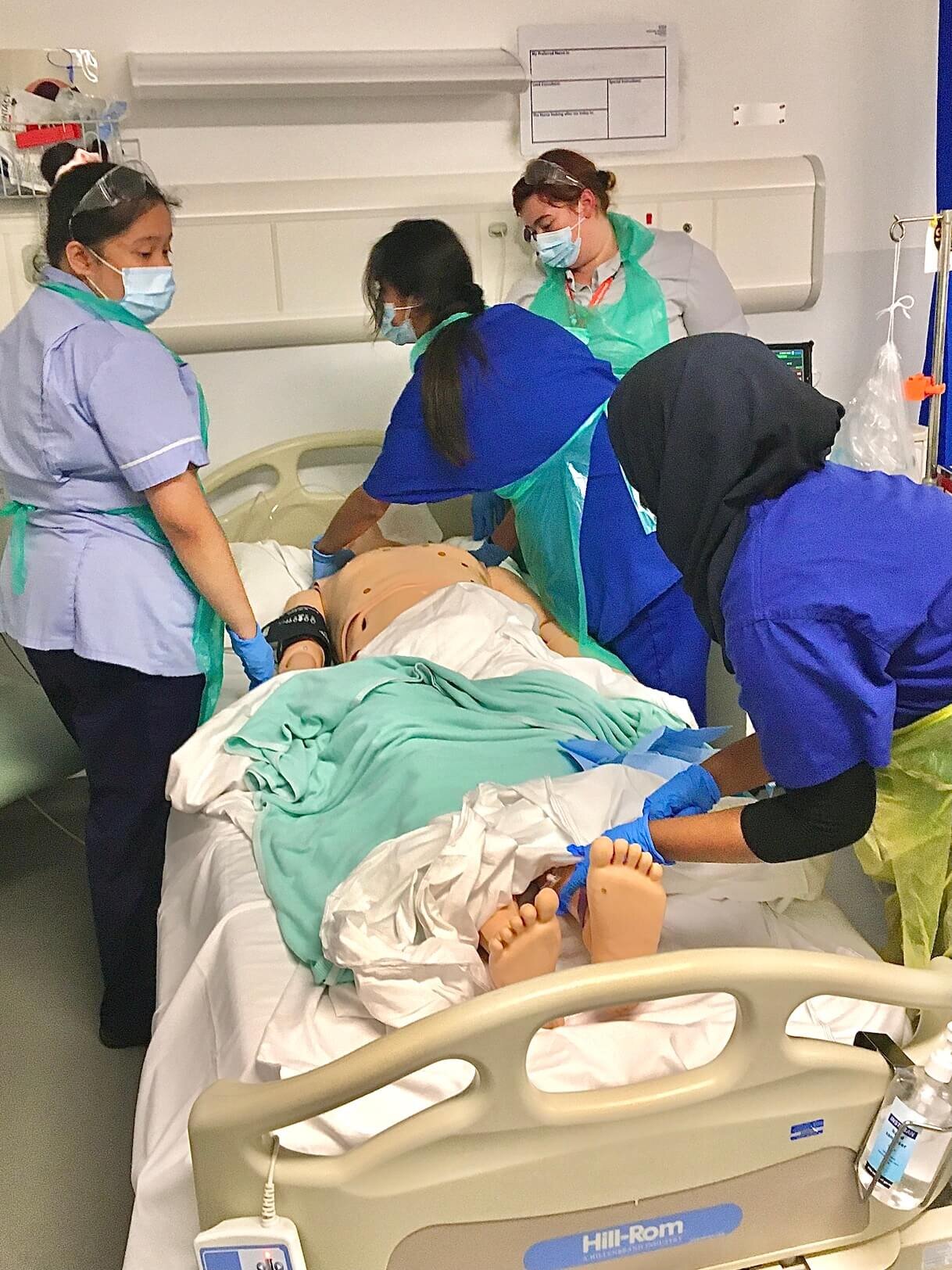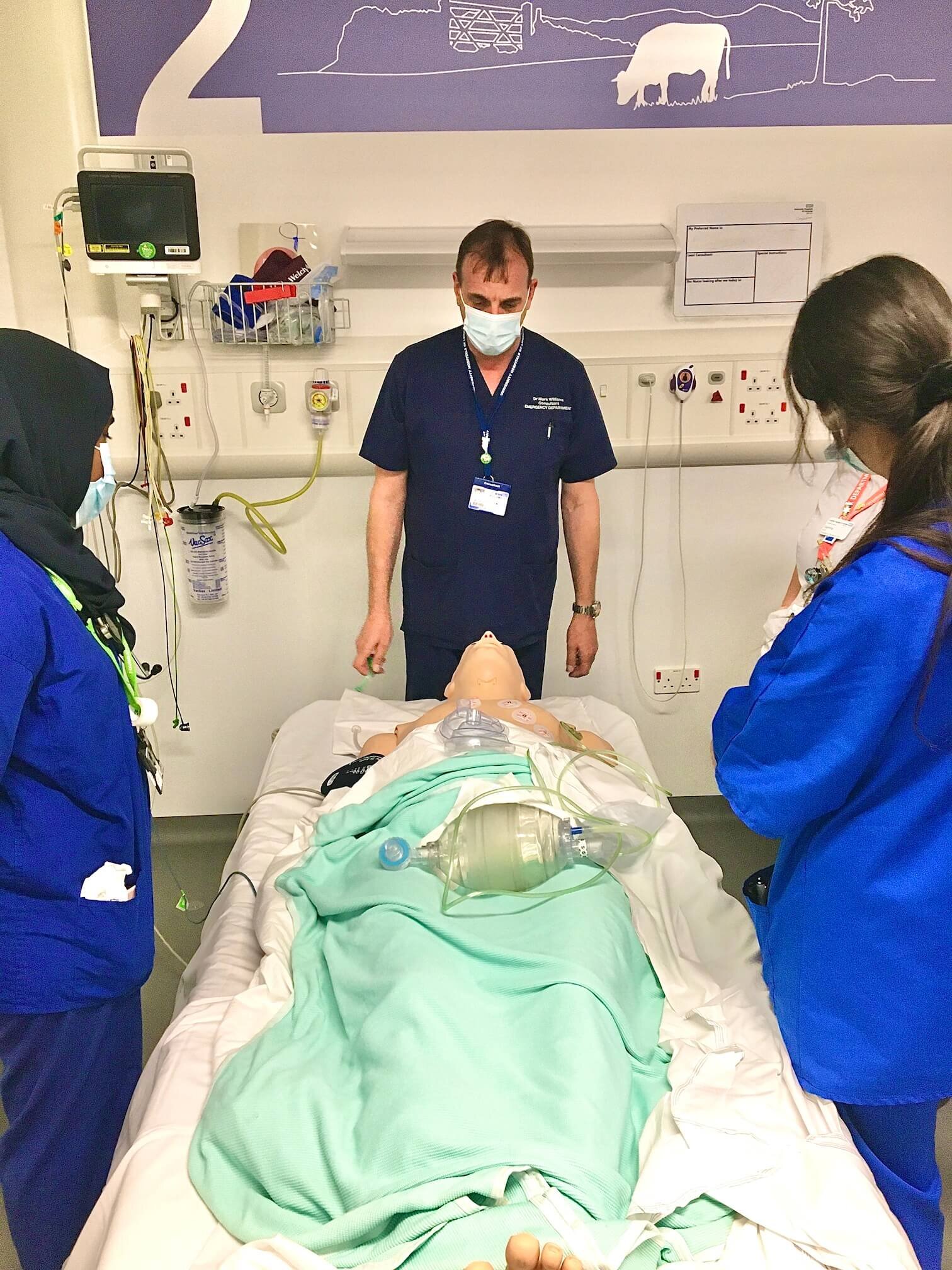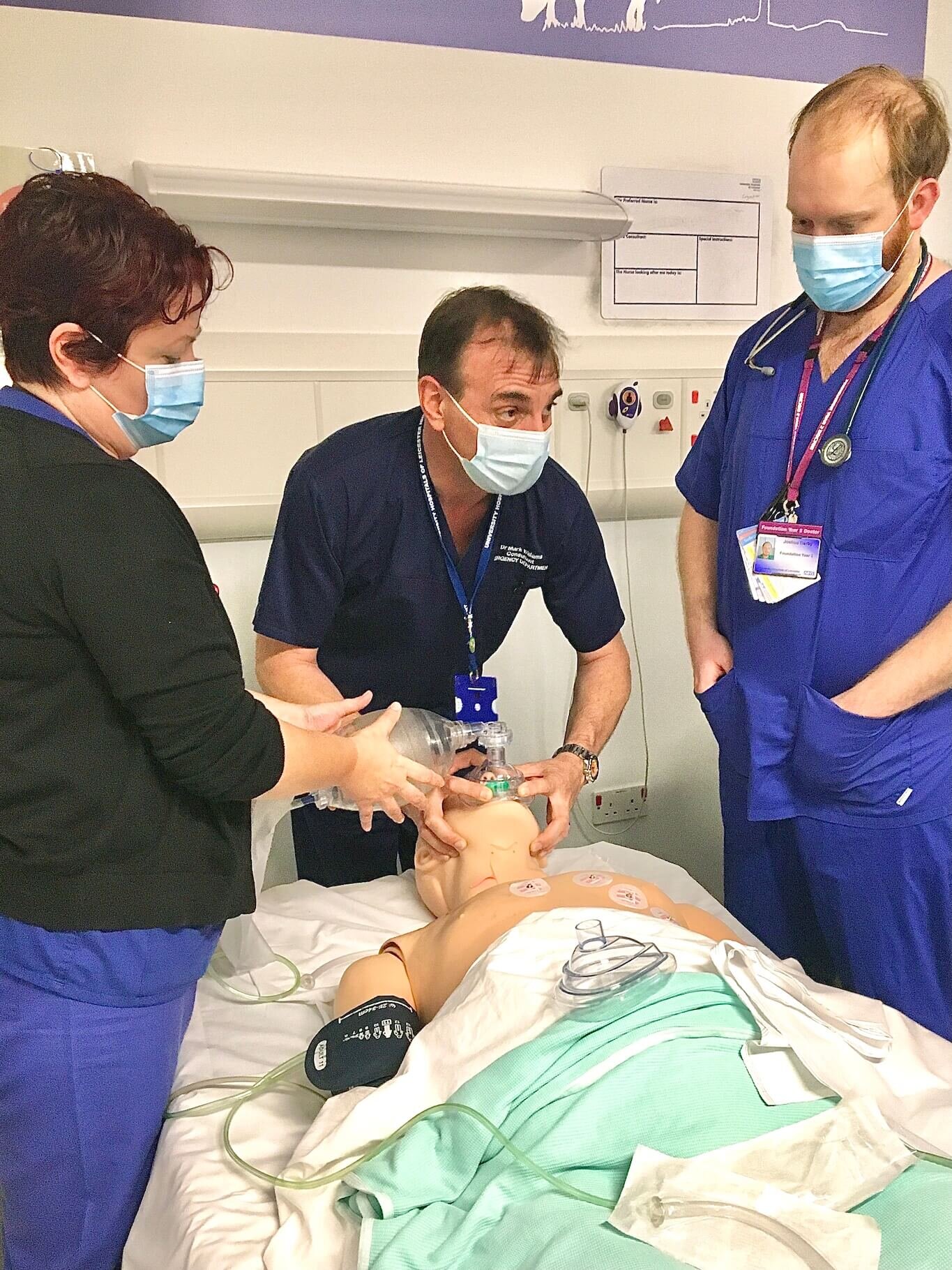Emergency Decisions Unit (EDU) Mini Sims
Pre-Brief
Our Emergency Decisions Unit (EDU) is a ward area for patients that require further observations, treatment for a short period of time, or transport to return home. However, whilst being admitted to EDU, their clinical condition can change and deteriorate rapidly. Therefore we wanted to help train the staff working there in a safe learning environment, to ensure they had the skills, knowledge and confidence to manage acute scenarios.
These staff can often be working in isolation and have limited equipment available to them, so we created two case scenarios that would be appropriate for the EDU ward. Our learners included four junior doctors, two nurses and two HCA’s – assisted by two education faculty members.
Case One: Anaphylaxis
Anaphylaxis with a biphasic reaction → patient develops stridor (education faculty for live patient demonstration).
Learning Objectives (BEFORE)
To demonstrate effective, structured A-E primary assessment – leading to a diagnosis of Anaphylaxis (biphasic in this case).
Effective and appropriate clinical management of anaphylaxis (as per NICE guidelines/local ED pro forma). Quick administration of IM adrenaline.
Appropriate escalation of care: Adult 2222 call (patient develops stridor, needs to be moved to the ER).
Familiarise staff with our EDU Anaphylaxis box containing all appropriate equipment.
Learning Points (AFTER)
“Being the patient can feel quite scary at times. The staff were great at trying to keep me calm.”
Emergency buzzer not always heard in the doctor's office.
Good communication skills – now more aware of closed-loop communication.
Effective leadership – staff clearly identified who the leader was.
Case Two: Opiate Overdose with Head Injury
Opiate overdose with head injury → Patient drops conscious level and is in respiratory depression.
Learning Objectives (BEFORE)
To demonstrate effective, structured A-E primary assessment – leading to a diagnosis of opiate overdose and head injury.
Effective and appropriate clinical management – immediate escalation as patient has respiratory depression.
Appropriate escalation of care: Adult 2222 call. Aware of contents of cardiac arrest trolley.
Learning Points (AFTER)
Called for help early on.
Staff were able to practice basic airway manoeuvres.
Made aware of cardiac arrest trolley (and contents) as well as the contents of the medication cabinets.
Used closed-loop communication and demonstrated effective leadership.
Debrief
Both simulated scenarios were well received by all learners and feedback was anonymously gathered (some examples are shown below). When asked, staff expressed a wish to see some mini-sims based on mental health cases.
“Encouraged team work and realistic situations.”
“I’m now more aware of what equipment is available to me.”
“Debrief was useful for going through everything step-by-step.”
“Learned the importance of good communication.”
“I feel more confident when managing acute scenarios.”
“I now know what is expected of me within my role – thank you!”



